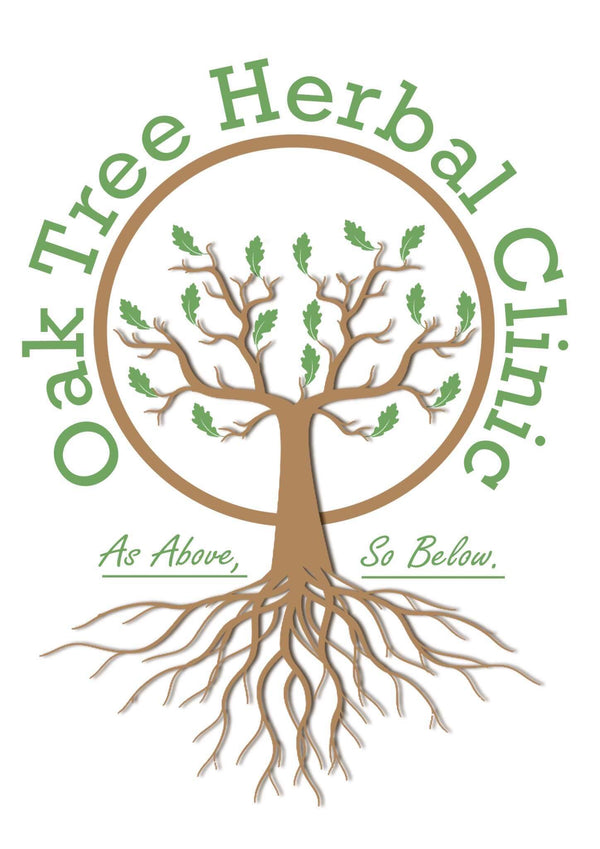Oak Tree Herbal Clinic
Irritable Bowel Disease - Pet Botanicals
Irritable Bowel Disease - Pet Botanicals
Couldn't load pickup availability
Herbal and natural treatments for Inflammatory Bowel Disease (IBD) in pets can be explored as complementary options alongside conventional veterinary care, offering potential support for gastrointestinal health.
Aloe Vera and Slippery Elm: Aloe Vera and Slippery Elm are two herbs that are sometimes considered for their potential soothing effects on the gastrointestinal tract. Aloe Vera may help reduce inflammation and promote healing, while Slippery Elm is known for its mucilage content, which can provide a protective coating to irritated mucous membranes. These herbs should be used cautiously and in consultation with a veterinarian, as inappropriate dosages or formulations may lead to adverse effects.
Probiotics and Digestive Enzymes: Probiotics and digestive enzymes are natural supplements that can support the balance of the gut microbiome and aid in the digestion and absorption of nutrients. Probiotics introduce beneficial bacteria to the digestive tract, promoting a healthy microbial environment, while digestive enzymes can assist in breaking down food.
Dietary Modifications: Dietary adjustments play a pivotal role in managing IBD in pets. Some natural approaches involve introducing hypoallergenic or limited-ingredient diets that are easier on the digestive system. Including herbs such as chamomile or fennel in a pet's diet may provide mild anti-inflammatory and digestive benefits.
It's crucial to emphasize that herbal and natural treatments should be part of a holistic care plan developed in collaboration with a veterinary professional. Regular monitoring of the pet's condition and communication with the veterinarian are essential to assess the effectiveness of any treatment and make necessary adjustments for the well-being of the pet.
How to Dose
Dogs
0.5 kg – 4.5kg = 1-3 drops 2-3 x day
4.5kg – 10 kg = 3-5 drops 2-3 x day
10kg – 22kg = 5-10 drops 2-3x day
50kg onwards = 10 – 20 drops 2-3 x day
Start slow and slowly build up eg. 3 drops for first week, then increase second week to full dose. Remain on the dosage for a few weeks, then decrease slowly. If symptoms return start again.
Cats
5 drops 2 x day with a strong-smelling food (to disguise) otherwise if you cat is brave you can place the drops inside their mouth. Start slow and slowly build up eg. 3 drops for first week, then increase second week to full dose. Remain on the dosage for a few weeks, then decrease slowly. If symptoms return start again.
May contain trace amounts of alcohol. If you want to take the alcohol out of your tincture, then take lid off bottle, simmer slowly till water starts to bubble (only slightly bubbling) remover, then your done. This will help to evaporate the alcohol from your tincture.
Disclaimer
This website is for educational purposes only. The information provided here is not a substitute for professional advice, diagnosis, or treatment. Always consult with a qualified veterinarian or healthcare professional for specific concerns or issues related to your pet's health.
While natural therapies can be valuable in supporting your pet's health, it's crucial to emphasize that consulting with a qualified veterinarian may also be essential. When incorporating natural therapies alongside conventional medicine for your pets, it's crucial to exercise caution and be aware of potential contraindications. Certain herbs or supplements may interact with prescribed medications, affecting their efficacy or causing unintended side effects, underscoring their importance. Consulting with a veterinarian experienced in integrative approaches will help to ensure the well-being of your furry companions.


